|
What do you think about art prices? Too high, too low or just right? No this is not a Goldilocks story. It is about the very real issue of living artists, collectors and our world today. I was reading various articles on pricing art and the question that stood out for me was this simple question: Why is art so expensive?
It seems like a strange question to ask because there are so many variables. What is expensive? What is cheap? Who knows? It all depends on the buyer or the collector to decide. Two hundred dollars for one person is a lot for some, but is chicken feed for someone else and so on. It doesn't really matter does it? Except I think it does. Here's why.
The Two Opposites
Whenever I discuss pricing and art sales with other artists it comes down to the idea that their art must be too expensive because they're not making sales. When I talked non artists it always seems to revolve around the idea: Well, I can't afford it, you know, it's too expensive and there's too many other things on our plate that I have to pay for. I can't justify spending a lot of money on a painting. It's a luxury, you know! Reductio ad Absurdam: We've got these two opposite poles. And the question is if it's perceived that art is simply too expensive for most people, then why don't artists cut their prices? If they do make the art cheaper, the implied result is that there's going to be a lot more sales. Artists will be happy. Plus more people are going to own original art and it's going to enrich their lives too. Now if that's the logical train of argument I don't think it takes too much to realise that's never going to work out. Simply reducing prices devalues art and leads to dissatisfaction on both sides. Artist and collector do not benefit. Eventually there is no point in creating original art anymore except as a hobby. But there is the other thing too. If you do not value art to begin with are you going to buy it because it is cheap? The other question is if you love art how will you feel about buying cheap art? Will it be special to you?
Value Proposition
It all comes down to how the potential collector perceives value. What is a person's perception of value for money? When they get up each day and decide to spend money what do they wish they could spend money on? Or save up to spend money on later in the month or during the year? What is it that is attracting them in their range of value perception? First of all what is a person's comparative range? What is being compared with what? The expense of something, marketable goods on the one hand, to paintings on the other. Any art for that matter. This is difficult, because fundamentally it is something that's missing more and more in the world today and it comes down to art education. Education and Values It seems more and more that people are not as educated about art as they were 50 years ago or certainly 100 years ago or more. Let's say a century ago. In the 19th century and early 20th century perceptions towards art were different to today. There was more value attached to art and artists. Artists were regarded as producing something of value to the culture of the times by the mere fact that they were creating art. The educated classes all had exposure to classical and master art history. Certainly not the case today. There was a big drop in that value perception of art and artists from the mid twentieth century. Maybe even after the First World War, but I think the Second World War was a defining time. Traditional values and creative arts fell into a crisis as the world was plunged into something new. A tremendous rise in materialism in the Sixties in the United States. While in Europe austerity took hold for a while longer. In both cases the meaning of life and creativity was questioned. Also science, industry, a materialist culture and the Nukes had a tremendous effect on artists and what they were creating. Not to mention Tupperware! Traditional art went out the window and suddenly anything goes. If the Bomb is going to drop tomorrow then your outlook on life might turn a tad cynical. By the end of the 20th century it is a case of anything goes. You could come up with anything traditional, modern, abstract shock tactics. Anything. It didn't matter. All that mattered to the media was what was newsworthy. If it had shock value then the media gave it attention and the public kept their mouth shut. Nobody stood up and said: Well, that's not art! That's just junk! If you could venture that opinion you would be labelled a Philistine.But at least it's an opinion. That is one thing that changed and continues to this day. People are not engaging with art like they did before the world wars. If art was produced back in those times when the public and society was engaged with art they would react to it. They would celebrate it or criticize it, but it had impact. These days art only has impact if it is particularly shocking and picked up by the media and put all over the TV and papers. For the general public today the decision is: I'm not going to say anything because then I'll look foolish. Anyway. What do I know about art? The only art education people are getting is either about record prices at an auction or some sort of shock art in the newspaper. That's not really an art education is it? This must have an influence on how society values art today.
But is it Good Art?
Many people may see paintings that look good. Even beautiful to look at, but if they don't trust their feelings and reactions to the art as legitimate and genuine what then? Is the art something that they can stand up and talk about confidently? If not are they going to buy it simply because it's beautiful to look at? Is that enough? It takes a lot of confidence to be able to say: I'm going to buy that painting because it's going to look great in my house. And I'm going to love looking at it. It's going to cheer me up. It seems so simple, but it's actually a difficult decision because it takes a lot of self confidence to reach that conclusion and then pull out the credit card and purchase that art. Artists may take that for granted. As artists, we may think: Well why are people not buying art if they love the painting so much. They must just buy it. When the art is not sold we immediately assume that it's just the price, but there's a lot more involved than simply price. As I said in the beginning, perception of value is paramount. A collector needs to see more to the painting than merely price. So if they love the look of the painting and think it's going to be fantastic in their home or their office and they are confident with their art tastes. If all of that is in place, then they're far more likely to want to buy art and go through with collecting art. Where to Begin Changing the Tide of Art Sales? One thing leads to another and the collector is born. Fantastic. But that is very few and far between these days. Especially compared to a decades ago. Maybe you could say it all starts in the schools. How many high school children take an art class? That is if the school even offers it to high school children. Children are encouraged to follow academics like maths and Science and engineering. Not to mention accountancy where the biggest chunk of the world seems to be heading. I don't see schools changing that anytime soon. We are going to have a lot of people leaving school with very little art education and art appreciation. All they're going to be exposed to is occasional auction news where some contemporary art reaches a record sale price. Everything else simply doesn't figure in. It is the Economy! Of course there is economics. If somebody is struggling economically, then nobody expects them to go and spend the rental money on purchasing art. That is common sense. Does the middle class still have it to buy art? Or has the middle class been crushed by repayments, mobile data prices and rising food costs? Many argue that this broad middle sector is tapped out. Artists must now struggle to sell to the two percent. Those very wealthy few with disposable income. I am not sure about this. Yes economics are an issue up to a point. But then value perception and education take over. Flat Screen or Art? How do you perceive the price of a painting? Why do you say it is so expensive? Ask yourself, what are you comparing it to? Are you comparing it to an appliance for example? If a medium sized painting costs as much as a new fridge or a flat screen television what do you decide? Is that a legitimate comparison? That fridge is just going to be a dirty appliance that needs cleaning and the flat screen is going to be out of date soon. Then you get bored with watching whatever rubbish is shown on cable. Is there true value in a quickly depreciating appliance? Hardly.
Holistic Investment There are many contemporary artists, whether it's modern abstract work or representational work, that are producing works of art of excellent quality. These works can be expected to increase with value over the years. Smart artists are increasing prices annually even if it is a small amount in the current situation. But is still increasing the value of their art. Much harder to see that with the stock market especially in the past couple of years. So let us assume that a painting is going to increase in value on an annual basis. That increase is compounding over the coming years. Is it not reasonable to believe that your painting has some intrinsic investment value? I certainly believe it is. These are artists that are not superstar auction house favorites. Rather the middle category of experienced artists producing excellent work. You can certainly aspire to purchase a painting in that sort of range and expect it to increase in value and importantly to give you pleasure for many, many years to come. That painting is not going to deteriorate. It's going to pretty much remain as it is. Whereas the gadget driven economy that we seem to be in, well we all know what happens with gadgets. They not going to last very long. And you're lucky if they last past the warranty period. If we escape the mindset or direction that marketers try to point us towards then we stand a chance. Marketers scream that is all about electronics, gadgets and so on. Silicon valley startups. Turn away from that noise and the art does begin to stand out as something that is meaningful, that is worthwhile. Art has many other value qualities to it to justify it's price tag. Why Does Art Deserve More? So what are the things that justify the price of art? Maybe it is the beauty of a painting that is an escape for you? At the end of the day you look at that painting and think that it is a poetry in paint. It is something to engage your senses, nostalgia for a happier times. Giving you a sense of optimism and hope. Maybe the painting makes your space, your home or office look vibrant and colorful. It is amazing how many places I've visited, whether it's offices or homes, where there is very little art in evidence. Maybe a lot of money has been spent on furniture and carpets and things like that, but the walls are bare of art. I find that quite sad and not because they haven't spent a fortune on art. The truth is that you don't have to spend a fortune. It is sad because too many people do not realise what they are missing. There is excellent art in so many price categories. Why are people spending a lot of money on furniture and carpets, but not putting art on the walls? I think we're coming back full circle to that whole idea of perception of value based on a lack of art awareness. Time to See With New Eyes Awareness of the importance and meaning that art brings to human life. After all, the creation of art is something uniquely human. And to me that is extremely important. I do believe that we as humans carry the capacity to create and destroy. What are we tempted to do the most? To fulfill our true selves we need to create and appreciate each other as creative souls. Dare we acknowledge love? One of the primary emotions that distinguish humans from the animal world is love. Surely love must be one of the biggest motivations for creating art? Isn't art something to be held with high regard and high value and something to aspire to have in your home? I believe that if people start looking at art in these terms, it's going to cut through a lot of the confidence issues that are holding people back. Art is a form of communication at a high level. Something that we humans are gifted with. Developing Your Confidence to Collect Art When you believe there is value to art and you believe it is something worth acquiring, how do you know it's good art? How do you know that you're going to be spending your money well and are not going to regret it later on? Speaking for myself there's never been a situation of buyer's regret. Maybe the collector who bought that painting by Banksy had regret? (See above) The painting that immediately started shredding itself after the auction. Of course, the auctioneer would immediately say the painting has gone up in value and what a bargain it was purchased for? But that's another story entirely. How do you know the art you want to buy is good? Who can judge whether a painting is really good or not? Well, there are some objective requirements. But the moment you say good composition, good brush work, then you can immediately be referred to some piece of modern art that lacks those qualities. Yet that work commands high critical acclaim. Certainly there is art that is being produced that is of poor technical skill. Not every piece of art that's produced is profoundly great on all levels. Hopefully these can be spotted by well informed people. Galleries. Educated collectors and so on. Step One: Have a good look at the painting that has caught your eye. And I refer to all types of art, of course, but I mention paintings because it's what I do. So look at the piece of art and consider it carefully from your own personal perspective. You have to live with it first of all and why live with a piece of art that you don't like to look at? Clearly this does not apply to hedge fund managers who will lock up the art in a vault anyway. Step Two: Once you've considered it at a deep and personal level you may still want to take some time to consider it and sleep on it. Decide is it right for you. If you're still thinking about that piece of art and feel that it will enrich your life, then I think you need to try and do whatever you can to acquire that piece of art. The point is you have to decide, is that art right for you? And if the art itself is something resonating with you and it's beautiful to you, then make a plan of acquiring that piece of art. You may need to reach an arrangement, if it is expensive and is slightly beyond what you're comfortable with purchasing. Reach an arrangement with the artist or the gallery to reserve it and get the funds together to purchase it. There is nothing wrong with this approach. It comes back to the issue of confidence. Also your attitude towards money. How you perceive money and your relationship with money has a big part to play in how you respond to art and the price. When ready you make the decision and purchase the piece of art confident that you will not regret it. Better with Art I've always held the belief that without paintings on my walls by various artists, my living space and my life would not be as enriched as it is. It's not that I have significant investment works hanging on my walls. I'm not suggesting that I'm able to purchase something at Sotheby's or Christie's for large amounts of money. I do appreciate beautiful art and if I can have that on my wall then I can look at it and I feel better for it. That is something very difficult to achieve with any other thing that I have purchased in my life. Even a car becomes a mode of transport that needs monthly insurance and annual taxes. Appliances and gadgets become just another thing, but the painting isn't just a thing. The painting proclaims itself as something completely and utterly different from mere tools and gadgets in your house or office. The painting simply is. It has a value that does, in my opinion, justify the price tag. Whatever price is on that piece of art. You will fall in love with your art. The purchase is worth it. That's what it comes down to. Having a piece of art that you love and that makes it worth everything you paid for it. I can also say that to be more confident with collecting art and the price that comes with it means being able to ignore the media. The media do not teach you about art. They don't teach you about value unless it is either the shock value or the financial shock value of a crazy auction price. Auctions are something completely different. A game played by an extreme minority in the world and has very little to do with justifying your purchase of your next painting. The Role of the Artist Be aware also that the artist had to acquire certain skills and do the work. Art is not produced by a machine like an industrial item that is stamped out and turned out. Instead there is that unique factor. There is that process of ideas and changing ideas into works of art that can be profound. It can be skillful. It can be beyond comprehension. Ultimately it is a transformation. And a uniquely human one that makes art something entirely, an utterly different from everything else. Once all of these things are added together does it make art seem affordable after all? Maybe it justifies it all. Maybe it makes art seem cheap by comparison to all the other junk and tat that is put out in the world every day in the hundreds and thousands and millions. Maybe it is our finest achievement? One of the highest achievements that humans have ever performed. Looked in this light art is extremely good value for money and you should go out and buy lots of it. Just kidding. You can look at art in many ways as pointless luxury or as something to aspire to. To enrich your life and make life a bit better. Giving you a bit of hope and something to smooth the edges off a bit. Why Is Art Expensive is Not the Correct Question There are many ways to look at the subject. It will always be debated. Ultimately being more aware of art and art history and what makes art meaningful helps with the decision of whether it's something worth purchasing. Whether the price tag is justified. So you can decide. Instead of asking why art is so expensive, ask how art can make your life better? It would be nice to hear a few other opinions on this subject. Leave a comment or drop me a message. |
AuthorMalcolm Dewey: Artist. Country: South Africa Archives
June 2024
Categories
All
FREE
|
|

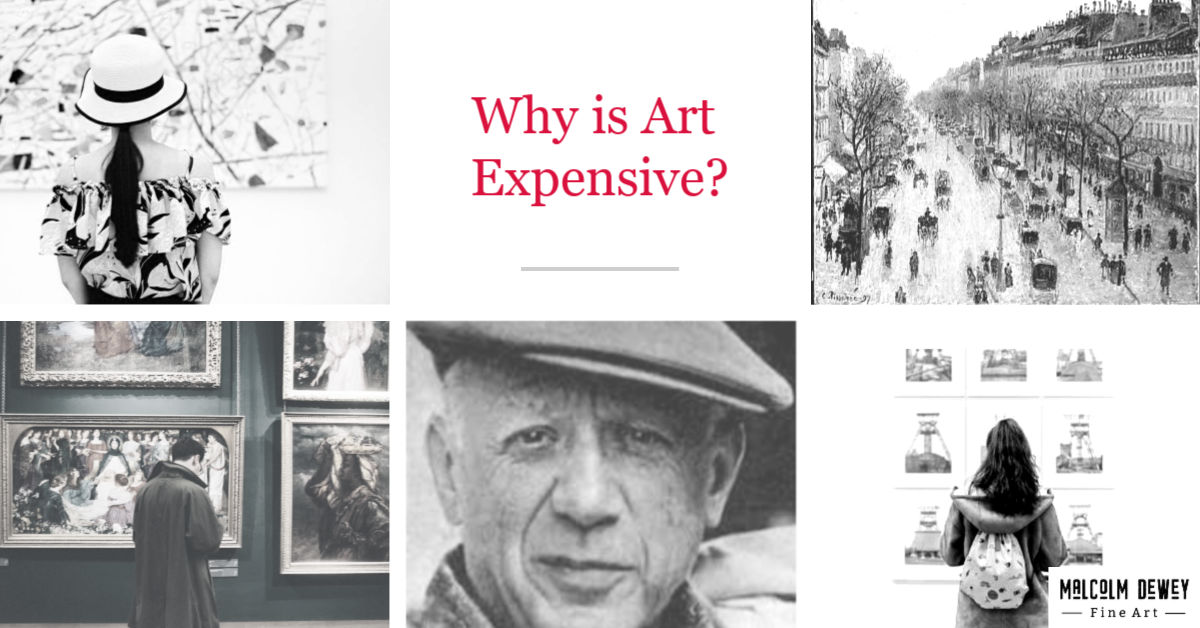
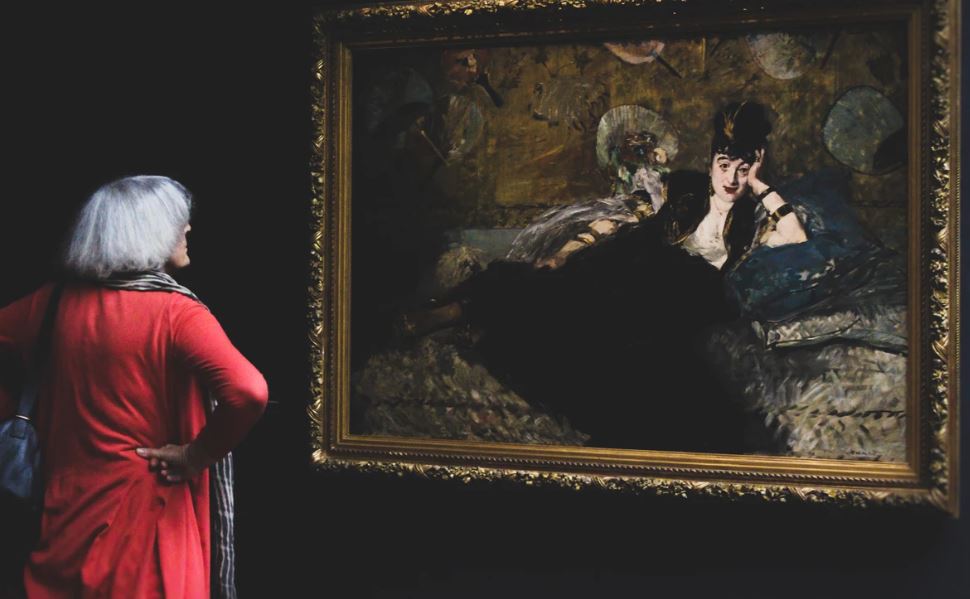

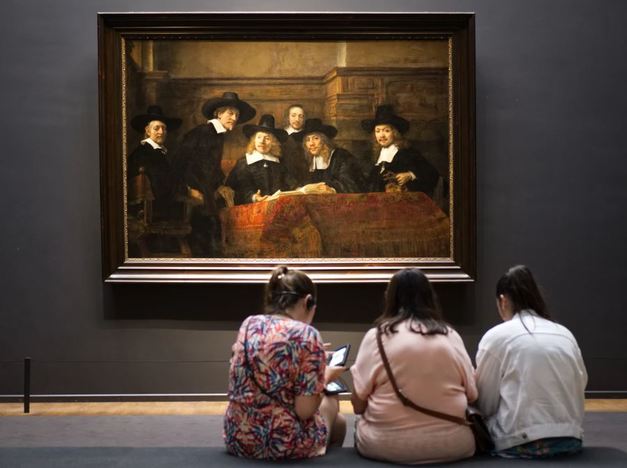
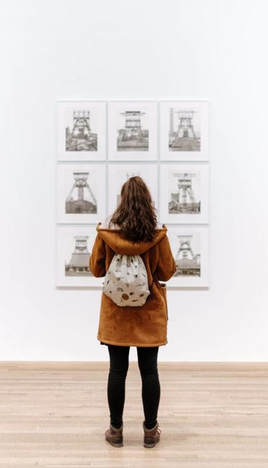
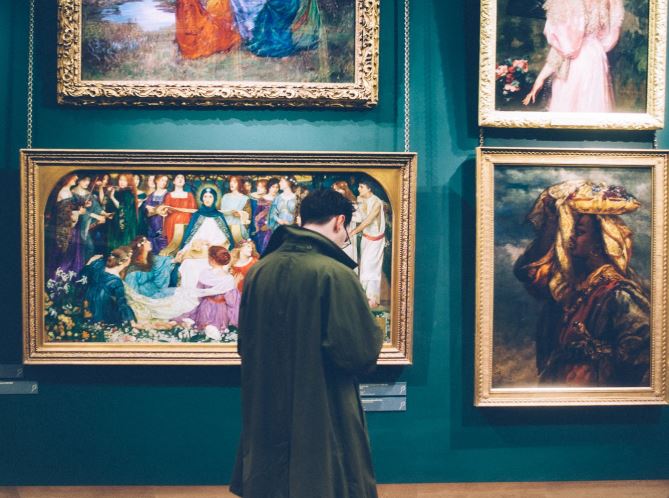
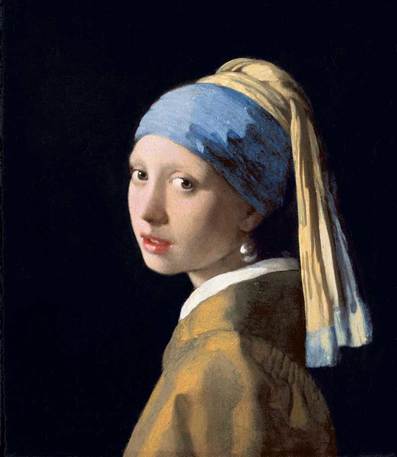

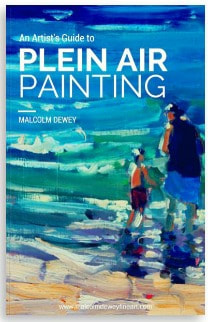


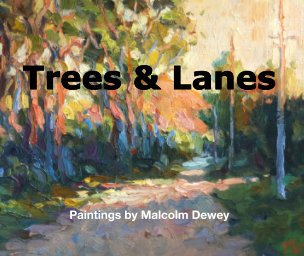




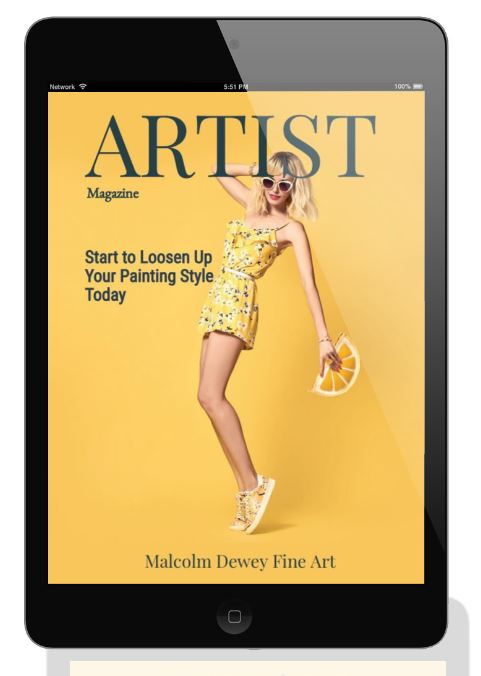
 RSS Feed
RSS Feed






